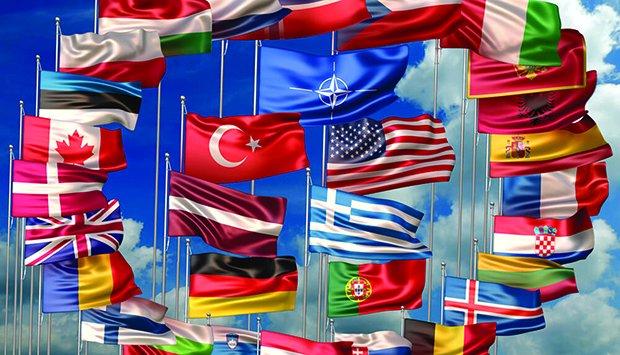Africa-Press – Seychelles. World leaders have determined to act decisively and urgently to improve productive health, the sustainable use of the oceans and ecosystems, in the face of the progressive threat of rising temperatures and plastic litter in the oceans, factors that have put marine biodiversity at risk. .
At the II United Nations Conference on the Oceans (27 June to 1 this month), held in Lisbon, Portugal, the Angolan delegation was led by the President of the Republic, the first to speak, among the 192 Heads of State and Government.
On the occasion, João Lourenço called for the strengthening of maritime defense and security capacity, with a view to facilitating international trade and ensuring safety in the oceans.
The Conference, under the theme “expanding ocean action based on science and innovation for the implementation of Objective 14”, organized by the governments of Portugal and Kenya, served to discuss the future of the oceans and was attended by more than thousand individuals, including representatives of 193 UN member countries.
In the political declaration, issued at the end of the Second United Nations Conference on the Oceans, world leaders expressed concern about rising sea levels, coastal erosion, acidity and the progressive warming of sea waters.
The statement added that marine pollution is increasing at an alarming rate, which has led to a decline in marine biodiversity, noting that half of all living corals have been lost while invasive species pose a significant threat to marine ecosystems and resources.
The organization acknowledged that while progress has been made towards achieving the Goal 14 targets, action is not proceeding at the speed or scale necessary for the purpose.
The document states that climate change is an alarming factor for adverse effects on oceans and marine life, including rising water temperatures, deoxygenation, rising sea levels, decreasing polar ice cover, as well as coastal erosion and extreme weather events, determinant for the conservation, abundance and distribution of marine species, such as fish.
Source of life
According to the declaration of world leaders, as an important source of biodiversity, the ocean is fundamental for the life of the planet and for the future of humanity, playing a central role in the climate system and in the water cycle.
“The ocean provides a range of ecosystem services, provides us with oxygen to breathe, contributes to food security, nutrition, and decent jobs and livelihoods, acts as a reservoir of greenhouse gases and protects biodiversity, provides shipping, including for global trade.
It constitutes an important part of our natural and cultural heritage, and plays an essential role in sustainable development, an ocean-based economy and poverty eradication”, underlines the statement that suggests the interconnections and potential synergies between Goal 14, in the sense of contribute to the realization of the 2030 Agenda.
Paris and Glasgow Agreement
They recommended the implementation of the Paris Agreement, adopted under the United Nations Framework Convention on Climate Change, including a commitment to limit temperature rise to much less than 2°C above pre-industrial levels.
From the perspective of statesmen, there must be a commitment by all to limit the rise in temperature to 1.5°C, in order to achieve a significant reduction in the risks and impacts of climate change, which would help to ensure productive health, sustainable and resilient use. of the ocean and human life.
They added that the measure also involves implementing the commitments of the Glasgow Climate Pact on mitigation, adaptation, provision and mobilization of finance, technology transfer and capacity building for developing countries and small island developing States.
They also expressed the need to engage in the containment of cumulative human impacts on the ocean, such as ecosystem degradation and species extinction, food security and human health, within the framework of the “Second World Ocean Assessment and the Intergovernmental Platform for Science Policy on Biodiversity and Ecosystem Services”.
Such action, according to the final declaration, is encouraged by the voluntary commitments of more than 100 Member States to protect at least 30 percent of the global ocean, within marine areas and other effective area-based conservation measures by 2030. .
The event welcomed the decision to convene an intergovernmental negotiating committee to develop a legally binding international instrument on plastic pollution.
For More News And Analysis About Seychelles Follow Africa-Press






